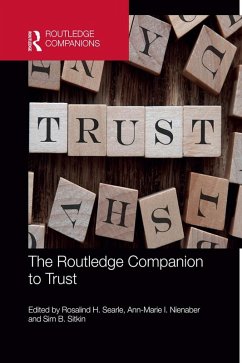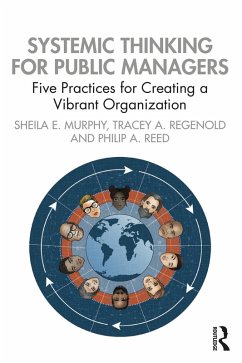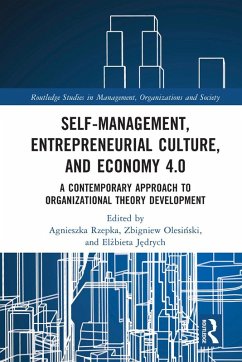
Management, Organizations and Contemporary Social Theory (eBook, PDF)
Versandkostenfrei!
Sofort per Download lieferbar
37,95 €
inkl. MwSt.
Weitere Ausgaben:

PAYBACK Punkte
19 °P sammeln!
Social theorists speculate about large-scale social questions, asking of any phenomenon, how is it possible? This book addresses how various social theories contribute key insights into the nature of organizations and management.The cast of characters to be found in this book have had a transcendental impact, including on the practices of the management and organization disciplines. For students, however, engaging with social theory in a conversation that is much broader and potentially richer than those that may have been previously encountered is not at first easy. The question is where to b...
Social theorists speculate about large-scale social questions, asking of any phenomenon, how is it possible? This book addresses how various social theories contribute key insights into the nature of organizations and management.
The cast of characters to be found in this book have had a transcendental impact, including on the practices of the management and organization disciplines. For students, however, engaging with social theory in a conversation that is much broader and potentially richer than those that may have been previously encountered is not at first easy. The question is where to begin: this book provides answers.
Drawing on research from international contributors, this valuable textbook is an essential resource for students and introduces key social theories and theorists making them accessible to a management audience. The chapters include objectives and end-of-chapter reflective questions, as well as a glossary for readers grappling with new terms.
The cast of characters to be found in this book have had a transcendental impact, including on the practices of the management and organization disciplines. For students, however, engaging with social theory in a conversation that is much broader and potentially richer than those that may have been previously encountered is not at first easy. The question is where to begin: this book provides answers.
Drawing on research from international contributors, this valuable textbook is an essential resource for students and introduces key social theories and theorists making them accessible to a management audience. The chapters include objectives and end-of-chapter reflective questions, as well as a glossary for readers grappling with new terms.
Dieser Download kann aus rechtlichen Gründen nur mit Rechnungsadresse in A, B, BG, CY, CZ, D, DK, EW, E, FIN, F, GR, HR, H, IRL, I, LT, L, LR, M, NL, PL, P, R, S, SLO, SK ausgeliefert werden.













